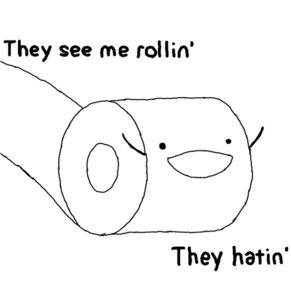11981405
Proteins
Resource summary
| Question | Answer |
| Complete the sentences: Proteins are _________. The monomers of proteins are ________ ________. A __________ is formed when two amino acids join together. A polypeptide is formed when more than _____ amino acids join together. | Proteins are POLYMERS. The monomers of proteins are AMINO ACIDS. A DIPEPTIDE is formed when two amino acids join together. A polypeptide is formed when more than TWO amino acids join together. |
| What is the structure of amino acis? |
A carboxyl group (-COOH) and an amino group (-NH₂) attached to a carbon atom.
The R group differs from one amino acid to another
Image:
Image (binary/octet-stream)
|
| What is the smallest amino acid? | Glycine (NH₂CH₂COOH) |
| How are peptide bonds formed? |
Condensation reaction
Image:
Image (binary/octet-stream)
|
| How are peptide bonds broken? | Hydrolysis reaction |
| Name the four levels of protein structure | Primary Secondary Tertiary Quaternary |
| What is the primary structure? | Sequence of amino acids in the polypeptide chain Determines the eventual shape of the protein Held together by the peptide bonds between the amino acids |
| What is the secondary structure ? | Chain coils or folds to form an alpha helix or beta pleated sheet These are held together by hydrogen bonds formed between the -NH and -CO groups of the amino acids |
| What is the tertiary structure? | The 3D shape where the coils and pleats coil or fold themselves They are held in place by hydrogen bonds, ionic bond, disulphide bonds and hydrophobic interactions |
| What are hydrogen bonds? | Occurs between some hydrogen atoms and some oxygen and nitrogen atoms in the polypeptide chain Opposite forces attract to form hydrogen bonds They are weak but there are many of them |
| What are ionic bonds? | Occurs between any charged groups that are not joined together by a peptide bond Stronger than hydrogen bonds but can be broken down by changes in pH/temperature |
| What are disulphide bonds? | Occurs between the sulphur atoms of some amino acids that are close together These are very strong |
| What are hydrophobic and hydrophilic interactions? | When globular proteins are in solution, their hydrophobic groups point inwards, away from water |
| What is the quaternary structure? | The linking together of a number of polypeptide chains E.g. haemoglobin has 4 polypeptide chains |
| Compare the structure of fibrous and globular proteins | FIBROUS = stable structure GLOBULAR = relatively unstable structure |
| Compare the solubility of fibrous and globular proteins | FIBROUS = insoluble GLOBULAR = soluble |
| Compare the function of fibrous and globular proteins | FIBROUS = structural functions (strength) GLOBULAR = metabolic functions |
| Compare the polypeptide chains of fibrous and globular proteins | FIBROUS = chains form long strands GLOBULAR = chains 'roll-up' into spherical shape |
Want to create your own Flashcards for free with GoConqr? Learn more.

